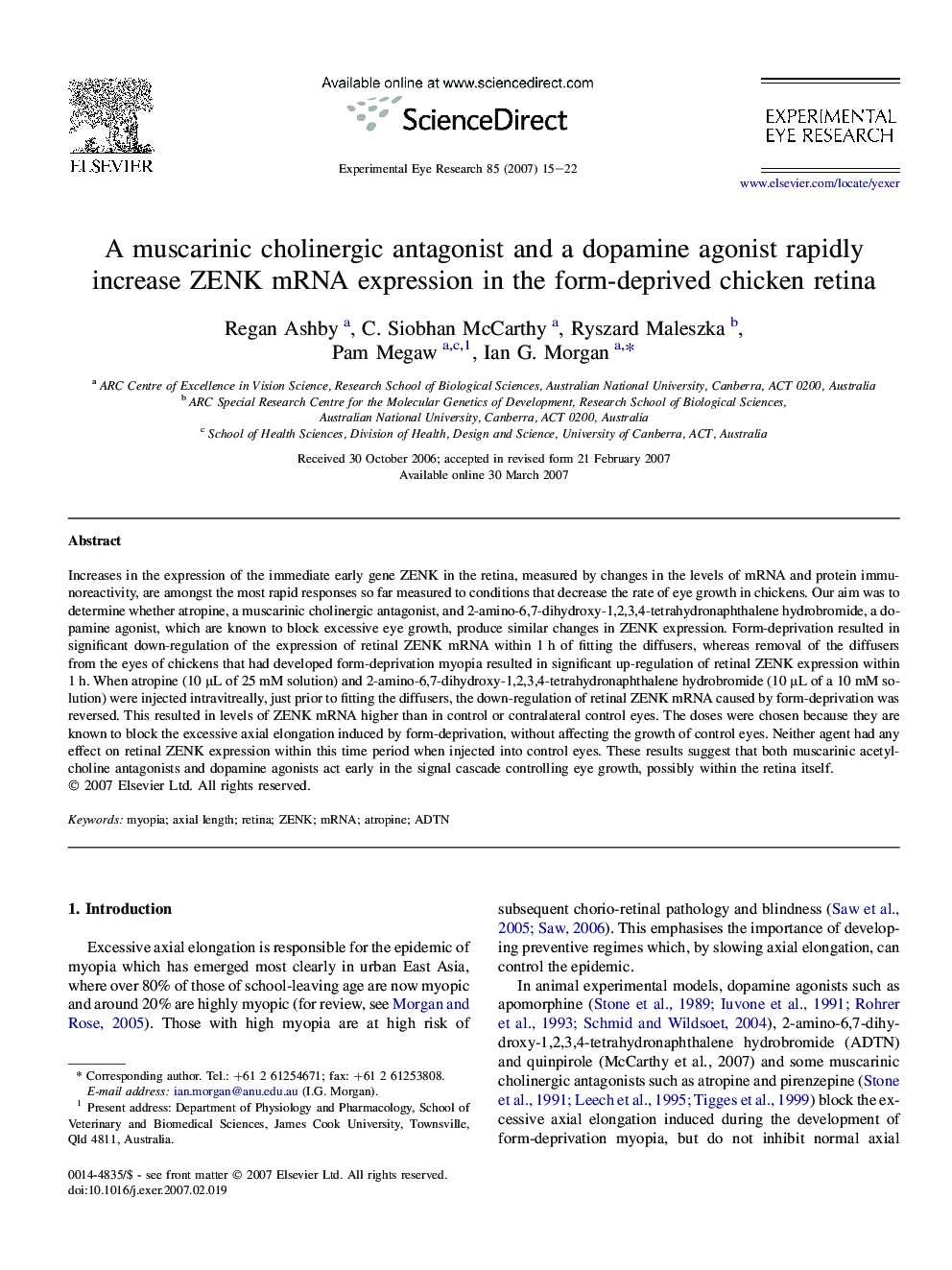| Article ID | Journal | Published Year | Pages | File Type |
|---|---|---|---|---|
| 4012881 | Experimental Eye Research | 2007 | 8 Pages |
Increases in the expression of the immediate early gene ZENK in the retina, measured by changes in the levels of mRNA and protein immunoreactivity, are amongst the most rapid responses so far measured to conditions that decrease the rate of eye growth in chickens. Our aim was to determine whether atropine, a muscarinic cholinergic antagonist, and 2-amino-6,7-dihydroxy-1,2,3,4-tetrahydronaphthalene hydrobromide, a dopamine agonist, which are known to block excessive eye growth, produce similar changes in ZENK expression. Form-deprivation resulted in significant down-regulation of the expression of retinal ZENK mRNA within 1 h of fitting the diffusers, whereas removal of the diffusers from the eyes of chickens that had developed form-deprivation myopia resulted in significant up-regulation of retinal ZENK expression within 1 h. When atropine (10 μL of 25 mM solution) and 2-amino-6,7-dihydroxy-1,2,3,4-tetrahydronaphthalene hydrobromide (10 μL of a 10 mM solution) were injected intravitreally, just prior to fitting the diffusers, the down-regulation of retinal ZENK mRNA caused by form-deprivation was reversed. This resulted in levels of ZENK mRNA higher than in control or contralateral control eyes. The doses were chosen because they are known to block the excessive axial elongation induced by form-deprivation, without affecting the growth of control eyes. Neither agent had any effect on retinal ZENK expression within this time period when injected into control eyes. These results suggest that both muscarinic acetylcholine antagonists and dopamine agonists act early in the signal cascade controlling eye growth, possibly within the retina itself.
